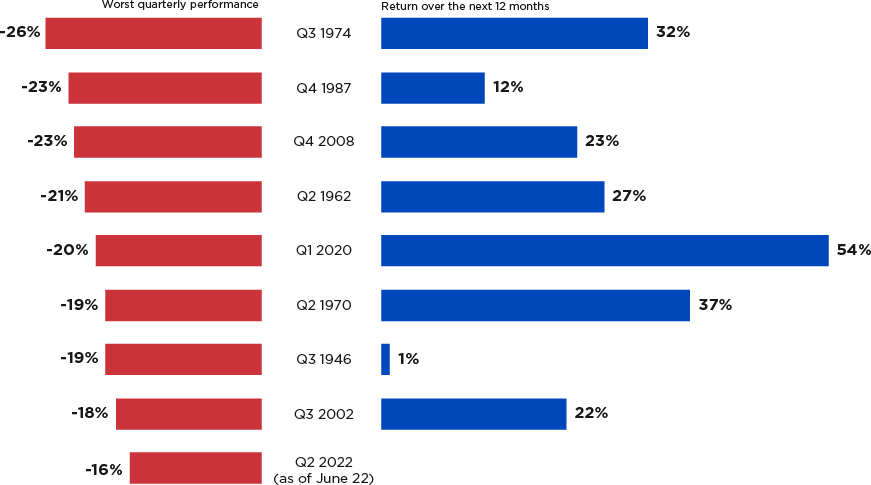What to do during a down market
What a volatile market means
Market volatility refers to when groups of stocks or bonds rapidly change price — up or down — over a relatively short time span.
Lower volatility
is when the price change is slower, less significant and over a longer period.
Higher volatility
is when the price change is faster, more significant and over a shorter period. Rapid price changes can impact the value of your retirement portfolio.
What a bear market means
How the market can affect your retirement portfolio
Tips on what to do in a down market
Refer to these 5 tips before deciding to take action in a down market:
Need more tips on how to avoid emotional investing? Watch this video.





